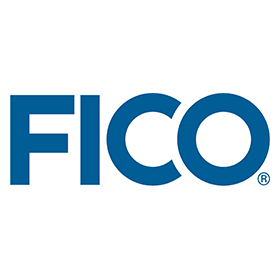Published
- 04:00 am

Credorax, leading smart payments provider and merchant acquiring bank, has today announced the appointment of Achiya Fried as Chief Commercial Officer.
With almost 25 years’ experience in acquiring, ecommerce and sales and marketing across the cards and payments sector, Fried will be leading on Credorax’s market growth strategy, while heading up the business development and commercial teams.
Prior to joining Credorax, Fried held positions at Israel Credit Cards and Ha’aretz as Executive Vice President of Payment Services and Vice President of Marketing respectively. Achiya was also CEO of Diners Club Israel, fully responsible for all of Diners Club activities in Israel and member of Diners Global Marketing Advisory Board.
Discussing the new role, Achiya Fried commented: “At a time of undoubted opportunity in the payments industry, Credorax is proving itself a key player in the arena. Its committed approach to the very best in customer service, coupled with its desire to bring innovative and disruptive technologies and solutions to market, makes this an exciting time to be joining the company.”
In its role as a smart payments provider, Credorax enables merchants to process payments more easily, offering a range of products and services which have been created to allow for the maximum possible growth for businesses. Credorax also offers approval rate optimisation and analysis, as well as an insights platform which assists in reporting and reconciliation and customized support services for Visa and Mastercard to make sure that no valid payments are denied.
Igal Rotem, CEO of Credorax, added: “Welcoming Achiya to the Credorax family is a strategic step in reaching our ambitious growth goals over the coming twelve months.
“Our solutions are a testament to the talented teams behind them and Achiya’s experience and expertise are impressive to say the very least. With his leadership, we are well positioned to take our company to the next level and I look forward to working closely with him. I’ve no doubt he will quickly become a highly-regarded and invaluable member of Credorax team.”
Related News
- 07:00 am

Broadridge Financial Solutions, Inc. (NYSE:BR), a global Fintech leader, has partnered with AccessFintech to deliver a new Strategic Gateway for Settlement Workflow that offers efficiencies in resolving multi-party settlement fails. The solution is powered by Broadridge’s industry-leading post-trade platforms and data, and incorporates AccessFintech’s cloud-based operations workflow model. As a result, banks, broker-dealers, prime brokerages and custodians can achieve transformational benefits that include cost savings, reduction of operational risk, expedited resolution of settlement fails, and a seamless experience for their buyside clients.
“The volatility in the securities market over the past year highlighted the industry’s need for a more efficient settlement process that promotes market liquidity,” said Vijay Mayadas, President of Capital Markets at Broadridge. “Broadridge’s partnership with AccessFintech aims to bridge operational gaps that currently exist in multi-party exception management with a collaborative approach, providing the sell-side with consistent, quality data and an automated workflow. Our latest investment demonstrates Broadridge’s continued commitment to driving efficiency across the industry through an enhanced post-trade processing experience and simplified technology, including a consistent API framework.”
In the current market environment, the process of resolving settlement failures is manual, involving offline and time-consuming channels such as email, phone calls and chats between multiple counterparties. This leads to greater operational risk, inefficiency, a challenging user experience, and regulatory non-compliance under the Central Securities Depository Regulation (CSDR) requirements expected by February 2022. By enabling a global network of participants to easily share data with multiple counterparties on one platform, the Strategic Gateway for Settlement Workflow ensures high-quality and consistent data, seamless onboarding, and transforms clients’ ability to compare data automatically and resolve settlement exceptions efficiently.
“In today’s banking environment, clients demand inventive yet robust solutions that can help reduce their costs and eliminate excessive complexity,” said Roy Saadon, CEO of AccessFintech. “We are excited to partner with Broadridge, as we believe clients of both firms will benefit from a much-improved experience in multi-party workflow management and exception resolution. Further, we look forward to working together on other new solutions to create a more powerful and innovative ecosystem for the market.”
Related News
- 04:00 am

Volvo Cars has used the cloud-hosted FICO® Platform to digitize and accelerate the customer onboarding process for its new vehicle subscription service, Care by Volvo. By automating the process, Volvo has cut the credit check process on applicants from three days down to seconds.
More information: https://www.fico.com/en/platform
Care by Volvo is a vehicle subscription service (Mobility-as-a-Service) designed to let customers enjoy the benefits of a new Volvo, without the challenges of owning one. For a fixed monthly fee, Volvo provides subscribers with a brand-new Volvo and covers all regular service, maintenance costs and breakdown cover. The service was introduced to reflect the shift in consumer preference toward car usage and away from absolute ownership.
“When we piloted Care by Volvo in Germany, we used manual credit reference checks, but this took too long and wouldn’t scale as we rolled the program out across Europe and North America,” said Fredrik Nero, product owner at Volvo Cars. “We needed to process applications faster, and approve applications in real time, in line with the Care by Volvo digital vision. Moving to FICO and its cloud-hosted digital decisioning solution gave us the speed and consistency we needed to improve the service and roll it out.”
Volvo adopted various components of the FICO Platform — FICO® Decision Modeler, FICO® Application Studio, FICO® Data Orchestrator Data Acquisition Module — in a cloud-hosted version for maximum efficiency. The solution connects to various external data providers, provides a workflow for managing referred decisions and is integrated with the digital sales channel. It is used for both consumer and business subscribers.
“We now have a single framework to handle third-party data consistently across countries,” said Nero. “This has allowed us to manage our credit policy with a single underwriting team, and yet allow for local market risk needs.”
Care by Volvo achieved its goal of real-time decisions for more than 80 percent of applications, with straight-through processing. As a bonus, the FICO-powered solution is being extended beyond Care by Volvo to all digital sales and new battery electric vehicles as the Volvo Digital journey progresses.
“Harmonization is very difficult as you move to the cloud, and you start to look at the different data streams,” said David Dittmann, vice president, Data & Analytics, P&G and one of the FICO Decisions Awards judges. “Volvo was able to take a manual, fragmented business process, and then centralize it and automate it in real time to make it talk to their backroom applications to make credit decisions. The judges thought Volvo did a great job deploying this system in the cloud across multiple countries.”
The FICO® Platform provides the ideal decisioning foundation companies need to successfully achieve digital transformation. It provides unprecedented insight into customers’ immediate and future needs by eliminating data silos and enabling interoperability between enterprise applications. FICO was named a leader by Forrester Research in The Forrester Wave™: Digital Decisioning Platforms, Q4 2020.
Related News
- 02:00 am

Chip, the award-winning savings app, has selected the custodian and investment technology provider, Seccl, to power its soon-to-launch Investment Platform.
By integrating directly with Seccl via API, Chip’s Investment Platform will provide users with simple and affordable access to financial markets. Seccl will act as custodian and ISA manager for the new investment proposition, safeguarding users’ cash and assets, while its API will also handle the trading and settling of investments – allowing users to create and fund accounts, before routing orders to the market.
The Chip Investment Platform is due to launch to the general public in April 2021 and will be the latest addition to Chip’s suite of wealth-building tools. In the past year, the fintech has introduced a host of new features aimed at helping users to save and grow their money, such as Chip+1, Investment Accounts and Payday Put Away, and is now gearing up to enter the investment market.
Simon Rabin, Founder and CEO of Chip, commented: “I can see a lot of similarities between Chip and Seccl when it comes to our approach to building products - we are both ambitious, agile and nimble. Things can move very slowly in the world of finance, but we were determined to bring our customers investment products as soon as possible to answer their need for more democratised wealth-building tools - all without compromising on customer experience and value proposition. Seccl’s technology has allowed us to do exactly that and will further enable us to expand our Investment Platform offering in the future.”
Dan Marsh, Head of Customer at Seccl, added: “Traditional technology has tended to make launching a new investment proposition slow and expensive – two traits that go against everything that Chip stands for as an energetic, empowering and fast-moving fintech. We’re delighted that our API has helped to break down these barriers to entry, by supporting Chip in getting to market fast – and are really excited to be powering what we’re sure will be a massively valuable platform for Chip’s fast-growing user base.”
Related News
- 02:00 am

A year since it was awarded CBILS lender status, responsible lender, AskIf, can now reveal it has approved close to £4m to deserving SMEs and micro businesses, playing an essential role in the national push to help businesses survive and thrive. AskIf has delivered on its mission to be an inclusive lender with 17% of CBILS loans distributed to BAME-owned businesses, and 22% to female-led businesses.
AskIf, founded in 2016 by Samantha Bamert, has worked with a variety of businesses from family-run food manufacturers, business consultancies, construction companies and even children’s nurseries on accessing CBILS. Priding themselves on an approachable and human application process, AskIf works personally with the borrower; learning about their business, their journey, present challenges and future concerns.
Birmingham’s Moonstone Day Care are one of those organisations, receiving a £100,000 CBILS loan in November 2020. Director Kerrie Ann-Wynter commented on the significance of the funding: “The number of children attending our nurseries dropped dramatically, so our income fell. We were very sure that we would gradually see children returning, but seeing our cash reserves shrinking was very stressful at times. We didn’t know whether we’d be able to cover our running costs every month as our outgoings remained high.
“The CBILS loan provided reassurance for us, our families, and our team that we could continue to trade until the number of children in our nurseries returned to normal. It would be devastating for the local community if we were to close, CBILS helped us avoid it. The closure of a nursery can have a serious knock-on effect and can prevent parents from being able to go to work.”
Samantha Bamert, Founder and CEO of AskIf, said: “We are committed to supporting businesses from across all communities in the UK and monitoring our reach to identify areas where we can improve diversity amongst our borrowers. Having the opportunity to make such a difference over the last year with CBILS has been nothing short of humbling; we have been in the trenches with our borrowers. It is an experience our lending team will take long into their financial careers.”
A year on from the launch of CBILS the Funding XChange Lending Monitor for 2021 reports that some funders are doing a disservice to UK businesses by defining sector exclusions, where some industries, such as hospitality, are seen as too risky. Given that these businesses’ positive trading performance makes them ineligible for government-backed lending, many of these high-performing businesses have limited options to access funding. The AskIf approach considers the specific circumstances of businesses and individuals using real-time data to ensure the recovery of UK business and in doing so can reach the SMEs other lenders are unable to support.
Related News
- 09:00 am

Acronis, a global leader in cyber protection and a member of the World Economic Forum (WEF) Centre for Cybersecurity, shared the results of a new report released by the WEF that warns that cybersecurity failure is a “clear and present danger” and critical global threat, yet responses from board directors have been fragmented, risks not fully understood, and collaboration between industries limited. Acronis contributed its expertise and insights from its work in cyber protection as part of the working group that helped create the report.
The WEF’s new Principles for Board Governance of Cyber Risk Report reveals that boards of directors need to play a more active role in protecting their organisation from cyber risks – and provides a solution to this fragmentation. Created by the WEF, the National Association of Corporate Directors, the Internet Security Alliance, and PwC, the report is the result of a year-long collaboration to find a cohesive, global and cross-border approach to cyber risk.
Around the world, organisations are facing a tremendous increase in cyber risk. Acronis’ research reveals that 31% of companies now experience a cyberattack at least once a day, a trend that’s expected to skyrocket as cybercriminals employ AI and automation to increase the sophistication and effectiveness of their attacks. Acronis also found evidence that more than 1,000 companies globally had their data leaked following a ransomware attack in 2020 – a trend that’s expected to accelerate as data exfiltration surpasses encryption as the primary attack tactic for cybercriminals.
The new Principles for Board Governance of Cyber Risk Report shows how directors can improve their understanding of cyber risks to quickly incorporate cyber-risk planning into their companies’ overall strategy.
“Without a principled foundation for understanding and governing cyber risk at the board level, risk responses have been piecemeal and security gaps have risen,” said Daniel Dobrygowski, Head of Governance and Trust at the World Economic Forum Centre for Cybersecurity. “These principles provide much needed foundations for directors in any industry or geography. Cybersecurity is not just a technology problem; it is an economic and strategy issue crucial for boards to address given the current environment.”
With insights from Acronis and other leaders in digital risk and cybersecurity, the expert-led team identified six principles that apply to a wider audience of boards and management teams, specifically:
- Cybersecurity is a strategic business enabler
- Understand the economic drivers and impact of cyber risk
- Align cyber risk management with business needs
- Ensure organisational design supports cybersecurity
- Incorporate cybersecurity expertise into board governance
- Encourage systemic resilience and collaboration
“The Forum provides insights for leaders around the world, and in the modern digital world, no issue deserves more attention than cyber risk management,” said SB Serguei Beloussov, Acronis CEO and Founder. “As a leader in cyber protection, Acronis contributes expertise and research to the Forum’s projects and implements the Forum’s guidance on risk management in our products.”
The World Economic Forum (www.weforum.org), the International Organization for Public-Private Cooperation, is committed to improving the state of the world. It engages the foremost political, business, and other leaders of society to shape global, regional, and industrial agendas. Acronis joined the WEF’s Centre for Cybersecurity in 2020, contributing its expertise to the private-public network’s response to the world’s growing cybersecurity threats.
Related News
- 03:00 am

Gerlionti S.A., a company in Luxembourg, currently in the process of obtaining an Electronic Money Institution (EMI) licence under the GerliPay trademark, has selected Nets Estonia to support the development of its new digital payment system, GerliPay.
GerliPay is Gerlionti’s fully-digital payment solution for startups, SMEs and large corporates, designed to provide seamless, flexible and customer-centric financial services. The platform will enable remote onboarding, business payment cards and salary payouts, multi-currencies, direct debits and more.
Nets Estonia will provide Gerlionti with its modular-based, feature-rich card management solution, alongside its highly scalable processing services, enabling GerliPay to offer frictionless payments and instant issuing.
Henrik Anker Jørgensen, CEO at Nets Estonia, said: “We are excited to support Gerlionti Group on its ambitious European growth journey and look forward to collaborating on a new digital payment service together. The last year has seen adoption of digital payments surge across Europe and as cashless experiences increase, new services – such as those provided by GerliPay – can expect to see a rise in demand from businesses and consumers across the continent.”
Kristaps Bergs, Board Member at Gerlionti S.A., added: “It’s a great opportunity to partner with the leading payment card management service provider to handle all of our payment card transactions and associated risk management. This collaboration with Nets brings us a step closer to our goal of launching our GerliPay product for customers.”
GerliPay will be accessible to European markets both online and via mobile apps from summer 2021.
Related News
- 09:00 am

Risk data aggregation is the top compliance concern for chief data officers (CDOs) within financial services firms, with 88% of these organisations devoting 40% or more of their total data practice budget to compliance functions, according to new research launched ahead of the leading data management event for financial services, FIMA.
The survey, conducted by WBR Insights among data and information technology executives within the financial services sector and sponsored by InterSystems, highlights that financial organisations are allocating significant portions of their budget to compliance initiatives, and that 54% of those surveyed further revealed that at least half of these functions are still performed manually within their organisation.
Eighty seven percent of executives say they are implementing strategic data management initiatives in 2021 to further key business objectives, such as boosting profitability and improving customer outcomes. Many firms report that AI-driven analytical cloud services are at the forefront of these initiatives, with such solutions enabling financial services firms to sift through enormous volumes of data and gain a single view of accurate, consistent, and trusted real-time data.
The research also provides CDOs with insight into how their peers are leveraging new data management technologies and architectures, such as data fabrics, automated governance, machine learning, data lineage, and blockchain to enable them to meet their myriad business requirements.
“Financial services organisations are striving to gain a competitive edge, deliver more value to customers, reduce risk, and respond more quickly to the needs of the business,” said Ann Kuelzow, global head of financial services at InterSystems. “This requires leveraging data to its full effect – and the research shows that there is still more work required on defensive data management and automating compliance functions, as well as the more strategic “change the bank” types of initiatives that could have a significant impact on their operations.”
Other key findings include:
- 70% of CDOs say risk data aggregation is the primary regulatory concern within their IT departments, while 69% say “Know Your Customer” is their primary area of resource consumption.
- 69% of CDOs say their organisations have applied data lineage as a data governance technique, and 52% have applied crowdsourcing techniques.
- 63% of CDOs are pursuing an analytics-driven business strategy through an offensive approach to data management.
“Advances in modern data management technology are ensuring our financial services customers can continue to meet compliance and risk management initiatives, while also enabling them to implement strategic initiatives that generate new revenue streams, enhance customer experiences, and improve operational efficiencies,” added Kuelzow.
Review the full research at: www.InterSystems.com/CDO
Related News
- 08:00 am

International payment service provider and direct bank card acquirer, ECOMMPAY, has today cautioned that attempted fraud levels have increased by two to three times their previous levels during the past year.
Based on the attempted fraud transactions that ECOMMPAY has flagged and prevented over the last 12 months, its data has also shown the UK has the highest attempted fraud level among the EU countries ECOMMPAY serves, and that record levels of fraud attempts are largely due to merchants’ insufficient knowledge of fraud prevention strategies, consumers taking few safety precautions, and greater activity among fraudsters overall.
ECOMMPAY reported the most common scenarios causing risk of online fraud were:
1. Merchants disabling part of the client or customer verification process, for example a feature where the user takes a ‘selfie’ with the payment card to verify their identity
2. Merchants allowing people to add an unlimited amount of payment cards to one account, allowing fraudsters to register with their personal card and add stolen payment cards afterwards
With the pandemic limiting face-to-face interactions, criminals have been turning to more sophisticated, online methods to steal and illegally use money. As well as this, many consumers may have been transacting online for the first time, making them more susceptible to fraudsters’ approaches.
“Fraudsters are aware that there is an influx of new adopters to digital transactions and online e-commerce brought about by COVID,” said Paul Marcantonio, Executive Director, UK & Western Europe at ECOMMPAY. “These new adopters are amongst the most vulnerable as they may be exposed to these new methods to trick people out of personal data and money.
“While merchants will be looking to grow their conversion rates and attract new customers, this cannot come at the expense of customers’ data and money, and those merchants using risky practices to boost business also risk being blacklisted by payment systems and suffering major reputational damage. At the same time, payment providers have a responsibility to keep merchants educated and informed on risks and how to improve their risk control systems - something ECOMMPAY takes seriously.”
Taavi Tamkivi, CEO of Salv and speaker at ECOMMTALKS agreed with Paul’s sentiment.
“For criminals, crisis and chaos always create opportunities to target weaknesses and exploit the most vulnerable. During COVID there has been a systematic increase in investment scams and all forms of cybercrime. These all happen very quickly and the money transferred to scammers can be relatively small, so there is definitely a lot more pressure on compliance and AML teams to learn and adapt quickly. Compliance and financial intelligence teams themselves have to adapt to the new reality of remote working, and limited and/or reduced resources. Also, as compliance teams struggle to allocate resources to deal with the increased volumes of the above-mentioned scams, spotting more complex money laundering patterns can be a difficult focus to maintain.”
How ECOMMPAY battles fraud
To resolve these issues, it’s important that merchants work with payment providers that have rigorous methods to spot and eradicate fraud in place.
ECOMMPAY, for instance, is teaching its proprietary Risk Control System with machine learning. The system accumulates and analyses all historical data about transactions in real time, boasting a 97% fraud detection rate thanks to its use of AI and machine learning. Based on this research and fraudulent activities the system identifies, it can determine the fraudulent patterns at play and also the fraudsters' online footprint. For example, one finding from the system is that fraudsters are generally connected to one another, and also are often connected with their victims in some way. Manual processes accompany this, with managers analysing transactions too and looking for correlations among fraudulent transactions. The company also analyses each company’s transactions separately from each other to understand the specific fraud patterns of a given business and help mitigate risks by creating remediation plans for each fraud attack.
Related News
- 04:00 am

Contour, the global trade finance network, has partnered with international software consultancy ThoughtWorks in China. This marks Contour’s latest milestone in its expansion in the region and in the digitisation of international trade.
Through this partnership, Contour will leverage ThoughtWorks’ software expertise and familiarity with the enterprise solutions landscape in China to help its local clients integrate seamlessly with the Contour Network.
Clients can expect Chinese language-supported integration services specific to their enterprise systems and enhanced user experience and connectivity while using Contour. At the same time, ThoughtWorks will bring the blockchain-based trade finance solution to its clients to help them overcome challenges arising from digitisation and internationalisation. The partnership will also help clients extend their business reach abroad and stay competitive in the global economy.
China - as the world’s largest exporter and one of the top three letter of credit (“LC”) markets globally – is a strategic target for Contour. This partnership will further expand Contour’s existing presence in China and offer Chinese banks and corporates greater accessibility to cross-border trade on the network. Recently, Contour signed its first Chinese production bank, and a leading iron ore company, Xiamen ITG, announced a successful cross-border RMB-denominated LC transaction with Rio Tinto on the Contour Network.
ThoughtWorks is a global leader in digital transformation with over 25 years of software consultancy and delivery experience worldwide. ThoughtWorks also has extensive experience in software development and innovative applications of blockchain technology in finance, providing customised end-to-end services for consulting and delivery to its clients.
The trade finance industry continues to face inefficiencies due to its reliance on paper-based processes. Previous digitisation attempts to solve this have failed due to the lack of a scalable, interoperable global network. Contour is overcoming this challenge by building a blockchain-based network to facilitate more efficient cross-border and domestic LC transactions. To date, Contour members have benefitted from vast efficiency gains, with transactions on the network reducing LC processing times by up to 90%.
Carl Wegner, CEO at Contour said: “We’re excited to expand our footprint in China and are eager to connect more Chinese corporates and banks with their foreign trade counterparts. Since 2019, we have successfully facilitated multiple RMB-denominated LC transactions on our pilot and beta networks. We’re definitely seeing a voracious appetite for trade digitisation in China. By combining our innovation with ThoughtWorks’ experience in the banking sector in China, we strive to deliver the full value of the Contour Network in China and to help local corporates and banks realize their full potential in the global trade ecosystem.”
Song Zhang, CEO at ThoughtWorks China said: “We’re keen to help Contour realise its vision of digitising global trade. The traditional, paper-based trade finance industry is more than ripe for a thorough digital transformation. As global trade begins its steady recovery from the pandemic, this also presents an opportunity for the industry to build back with fewer barriers and greater efficiency.”









